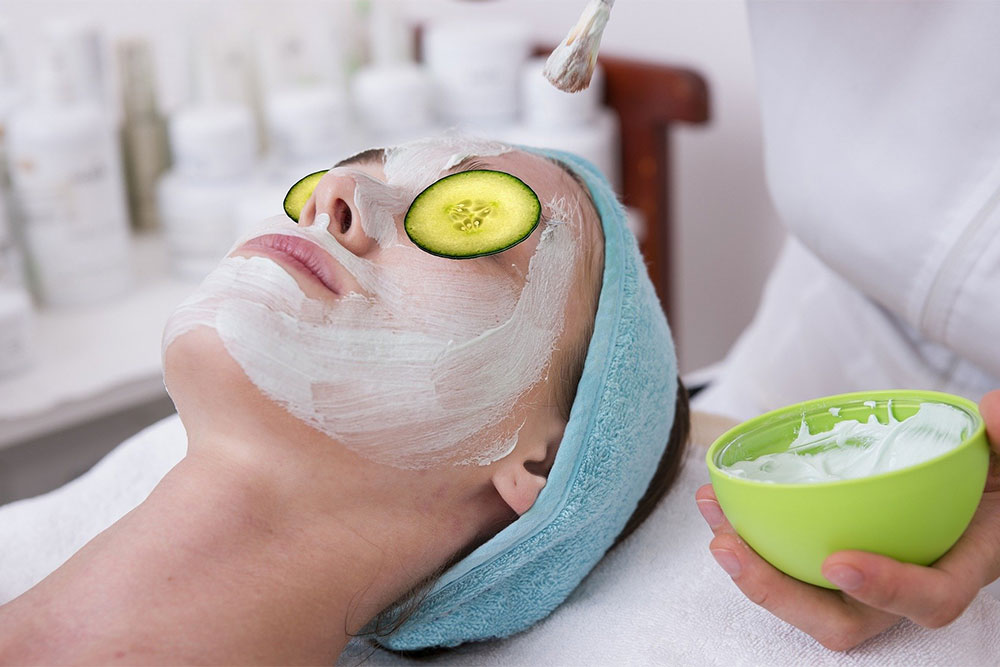The way you apply and use skin care products should change depending on the season.
If it is easier to do this in the summer, then in the winter it is a completely different matter. Temperature changes often have a negative effect on the skin of many women. In just a few days, it goes from plump and moisturized to dry and flaky.
During winter, there is usually less moisture in the air due to environmental and weather conditions.
When you factor in indoor elements like central heating and the fact that women tend to wear more layers of clothing, it is easy to see how much damage can be done to your skin.
If this sounds familiar, this article will cover 8 winter skin care tips you need to know.
Follow these tips and you will be able to survive the winter with almost flawless skin.
Why Winter is Bad for Your Skin
Harsh winter conditions make it difficult for your skin to retain its natural protective oils.
Dry and cold air irritates your skin, causing it to evaporate moisture and create dry and cracked skin.
In this situation, conditions like eczema or rosacea can easily flare up. Luckily, there are several ways to combat the causes of dry skin in winter that will help keep your skin smooth, silky, and soft all winter long.
One of the most important things you can do to maintain healthy skin in winter is to keep it moisturized.
You don’t have to completely overhaul your skincare routine during the colder months. However, you should focus more on the moisturizing varieties of your favorite products and cut back on products that can cause irritation.
Less daylight, less physical activity, a high-carb diet, and thick, layered clothing all add to our winter skincare woes.
So if you play on the side of winter and make the most of the extra time spent indoors to pamper yourself, your skin will not only thrive in winter, but it will also be easier to get it in tip-top condition for the spring and summer months.
So how do you do that? Here are some tips and tricks you can use to improve your skin during the winter.
Use a humidifier
By restoring moisture to the air and maintaining humidity at an ideal level of around 40-60%, humidifiers will help protect your skin barrier when you’re indoors.
Not only does the built-in technology of humidifiers prevent your skin from drying out, but they can also help relieve congestion, ease asthma and allergy symptoms, kill germs that spread, and even help your partner stop snoring!
Most spaces, including your office, are heated with dry heat, which unfortunately dries out your skin. Therefore, using a cool mist humidifier can help balance the humidity levels in your environment, which in turn will help keep your skin hydrated.
Avoid taking very hot showers
It can be tempting to turn on a hot shower during the winter.
However, it is best not to do this, as hot water strips the oils from your skin, making it more prone to drying out, flaking, and cracking.
Try to balance the heat levels in your shower to keep some moisture in your skin.
Moisturize while your skin is still damp
After washing your face, apply a hydrating lotion, serum, and then moisturizer. If you have taken a warm shower, apply body oil or lotion to lock in extra moisture.
At night, try to use a thicker moisturizer for your face and body, as this will help to lock in and retain moisture in your skin.
Also, avoid harsh facial cleansers in winter and try to use a gentle, hydrating, fragrance-free cleanser and makeup remover every day.
A serum that has a lipid-soluble base allows the active ingredients to penetrate into the deeper layers of the skin, rather than remaining on the surface. Therefore, it is worth including in your daily care.
It is also worth using products with vitamin A, as it accelerates skin renewal and exfoliates it, stimulating the production of collagen and elastin. Similarly, vitamin C is considered the best moisturizing serum. This powerful serum is loaded with antioxidants that help promote collagen and elastin production.
Adding a hydrating face mask to your skincare routine will give your skin a deeper hydration boost, which is only beneficial during the winter months.
Take Care of Your Lips
Lips can get incredibly dry in the winter because they are also constantly exposed to external factors.
The layers of skin around them are much thinner than the rest of your body. It also doesn’t have the oil glands that naturally help it stay hydrated. So in the colder months, , you’ll need to take good care of them throughout the year.
Moisturizing with a lip balm, ointment, or oil with SPF is an easy way to replenish and hydrate this sensitive area, preventing it from getting constantly chapped and dry in the winter.
Drink plenty of water
We all know how important it is to keep our skin hydrated, no matter the season.
But it’s especially important in the winter, as our skin can’t retain moisture as well as it does in the warmer months.
So try to drink at least 2 liters a day – this will help replenish lost moisture.
Don’t pay attention to the ingredients in your skincare products
You may have a favorite moisturizer that you stick to year-round. But winter is a great time to revisit your product’s ingredient lists to make sure it’s nourishing for your skin during these months.
The main ingredient to look out for is hyaluronic acid. It’s great for hydrating the skin as it can hold up to 1,000 times its weight in water. Peptides and ceramides are also great as they repair and strengthen the skin barrier and help maintain overall moisture levels.
Squalene, jojoba, and shea butter are other great ingredients that help keep your skin hydrated.
If you don’t exfoliate your skin, it will stay dry. So try a scrub with lactic acid as it acts as an exfoliant and moisturizer, removing dead skin cells and drawing moisture to the skin.
Even in winter, the sun’s UVB rays are still present. Therefore, the risk of sunburn remains, as the sun’s rays reflect off clouds, windows, and water.
Sunburn ages the skin. So remember to apply SPF 30+ every morning and reapply if you are active.
Hand Care
The Covid-19 pandemic has once again confirmed the importance of washing your hands regularly. However, while this may protect you from illness, it is not the best for your skin.
In winter, it is no longer enough to simply apply hand cream in the morning and call it a day. Instead, it is better to always have a handy tube of hand cream with you. This way, you can reapply it whenever you need to.
If you want an extra boost in your hand care, applying cuticle oil once a day will help keep your nails in great shape all season long.
See a skin care professional
If all else fails, you can seek out a professional skin care treatment.
There are several to choose from, including chemical peels, laser skin rejuvenation, microdermabrasion, and dermal fillers. They all have their pros and cons that you should weigh before making a decision.
If you haven’t tried it yet, many women have found the benefits of bioremodeling treatments like this one, so you may want to consider it as well.
Conclusion
Dry skin is very common in the winter months as a result of the cold, harsh wind outside, as well as drier, heated indoors. The main tips for winter skin care are to protect, nourish, and not neglect it.
It is also very important to maintain your water intake to keep your skin hydrated and soft.
You should also switch to skin care products that do not strip your skin of its natural oils. Additionally, wash your face with warm water, use gentle cleansers, apply nourishing serums, and use richer moisturizers to deeply nourish your facial skin.
Using a body scrub or polish can also exfoliate and remove flaky, dry skin, as well as stimulate circulation. Additionally, body oil is a great way to moisturize your skin in the winter, and should be applied to damp skin to lock in moisture after a shower.
Do all of these things, and you can confidently say goodbye to dry, flaky winter skin.




